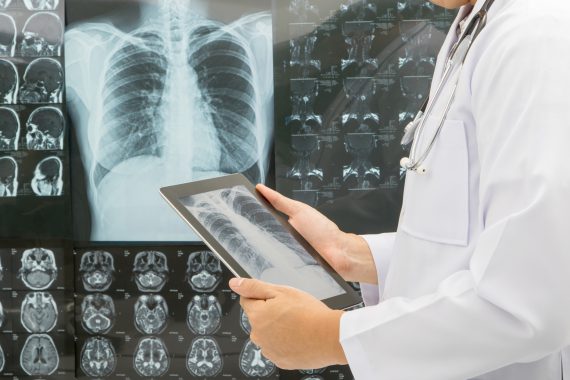GPs to refer patients to long Covid lung damage study

GPs will work with researchers using innovative scanning technology to reveal previously undetected lung damage in patients experiencing long-term Covid-19 symptoms.
The new scanning technique measures gas transfer in the lungs using xenon gas during an MRI scan and highlights damage to the lungs, which is not visible on conventional scans. Researchers can identify previously unseen impacts of Covid-19 on lung function and identify the overall prevalence of lung damage from the virus.
The pioneering technique, known as hyperpolarised xenon MRI, was developed by scientists at the University of Sheffield and has been trialled on patients in collaboration with researchers and GPs in Oxford.
Dr Shelley Hayles, a GP based in Oxfordshire and planned care clinical lead at NHS Oxfordshire CCG, has been involved in the early trials.
She told Pulse: ‘This is a new trial which has just started and we are feeling our way a bit with this. We are involved in terms of looking at ways we can assist with post-Covid symptoms and patient care. By working together, we hope to be able to improve the lot of people coming through this awful infection.’
Forty participants discharged from hospital following Covid-19 pneumonia are currently taking part in the study over six months. The striking early results have led to the planning of a larger-scale trial which would include people who have had the disease less severely.
Dr Hayles is hoping to ask GPs to recruit suitable patients to take part in the expanded study when the next stage of the research plans are finalised.
‘[GPs] will be asked to flag up anybody who is post-Covid with specific symptoms, who would like to take part in the study,’ she said.
‘They may be asked to monitor the patients after investigation, in order to identify any changes in their condition but this is all under discussion at the moment,’ she added.
Professor Fergus Gleeson, consultant radiologist at Oxford University Hospitals NHS Foundation Trust and head of academic radiology at the University of Oxford, who is leading the research, said the study may give an insight into why some patients have symptoms long after they have left hospital.
He stated: ‘This may help us identify patients that may potentially benefit from treatment even after discharge, for example, with steroids or other therapies.’
Dr Hayles added that research studies such as this one ‘rely on the medical skills of GPs to select patients appropriately for their work’ and said ‘this study will be no different’.
GPs are seeing an increase in patients presenting with long term COvid-19 symptoms, and care is often falling on the shoulder of general practice.
Pulse October survey
Take our July 2025 survey to potentially win £1.000 worth of tokens

Visit Pulse Reference for details on 140 symptoms, including easily searchable symptoms and categories, offering you a free platform to check symptoms and receive potential diagnoses during consultations.









